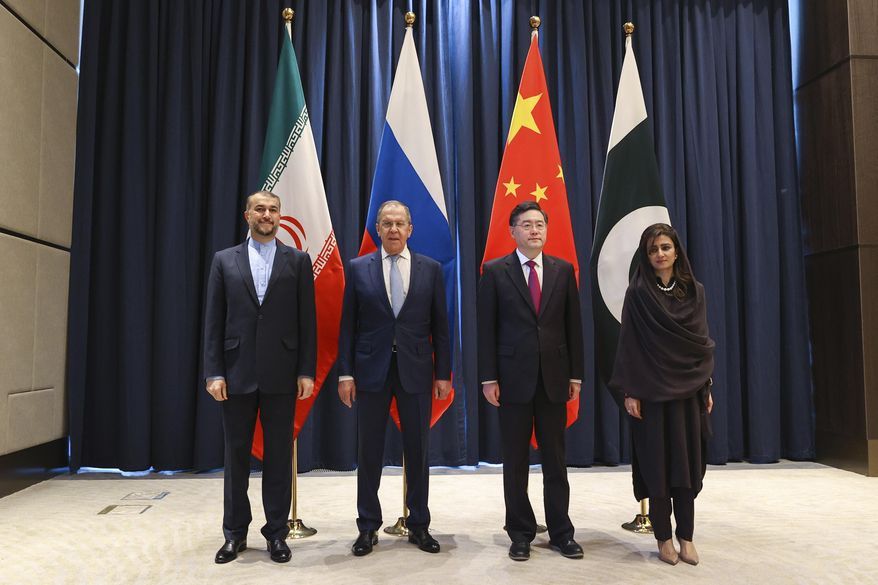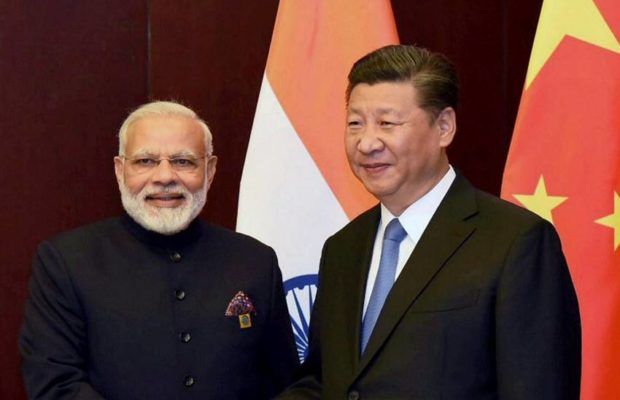China Signals Cooperation with Taliban-led Afghanistan at Central Asian Conference

The Lede: China has laid out a path of cooperation with the ruling Taliban regime in Afghanistan at a Central Asian regional conference hosted in Samarkand by Uzbekistan
What We Know:
- The meeting was attended by Taliban Foreign Minister Amir Khan Muttaqi, Chinese Foreign Minister Qin Gang, and Russian Foreign Minister Sergey Lavrov, as well as the leaders of six immediate neighbors of Afghanistan, including China, Pakistan, Iran, Tajikistan, Uzbekistan, and Turkmenistan.
- The foreign ministers of China, Russia, Pakistan, and Iran held separate talks under a group called the Quadrilateral Group on Afghanistan. They discussed the need to cooperate with the Taliban authorities as a means of maintaining political stability and preventing a further deterioration into humanitarian crisis.
- China highlighted positive neighborly ties to Afghanistan and offered peace, development, and prosperity as part of the Belt and Road Initiative.
The Background: China has stepped up engagements with the Taliban since they took control of Afghanistan in August 2021 after the departure of U.S.-led troops at the end of twenty years of conflict. Beijing has maintained its embassy in Kabul after the Taliban takeover although most foreign governments have not recognized Taliban rule due to rules on Afghan women and concerns over human rights abuses. The U.S. has imposed sanctions and frozen Afghanistan’s funds since the military withdrawal. The UN estimates that about 28.3 million people, around two-thirds of the population, require humanitarian assistance while 6 million people are at risk of famine.
Likely Outcomes:
- Desperate for relief and weighing the results experienced by other countries that have collaborated with China, the Taliban may reach a near-term plan with China on development and reconstruction with the possibility of being a part of the Belt and Road project. Afghanistan position at the nexus of the Middle East, South Asia, the rest of Central Asia, and China itself at the edge of Xinjiang Province, holds signficant value to Chinese interests – leading to investment and development as part of the larger context of Central Asian economic and infrastructure integration under the Chinese umbrella.
- Opposite the strategy of cooperation offered by China to Afghanistan, the U.S. is not likely to lift sanctions or release frozen assets. The U.S. political and military abandonment of Afghanistan will likely continue into financial and economic neglect. The U.S. reputation in Central Asia will likely remain muted for the foreseeable future. Meanwhile, the wider region will continue to seek increased ties to China.
Quotables:
"China welcomes Afghanistan's participation in Belt and Road cooperation and supports Afghanistan's integration into regional economic cooperation and connectivity that will transform Afghanistan from a 'land-locked country' to a 'land-linked country.' – Chinese Foreign Ministry Afghan Policy Document
"The Afghan government in adopting moderate, prudent and inclusive policies. China stands ready to step up coordination and cooperation with Afghanistan's neighbors and the rest of the world to help Afghanistan embark on a path of stability and development." – Wang Wenbin, Chinese Foreign Ministry spokesperson
Good Reads:
Taliban, China, Russia Foreign Ministers Attend Huddle on Afghanistan (VOA)
China calls for support for Afghanistan reconstruction, development (Press TV)



